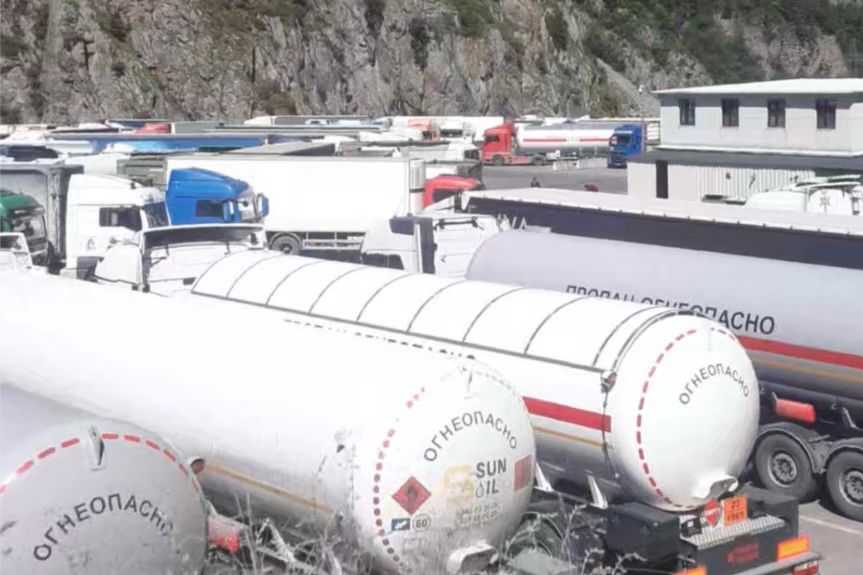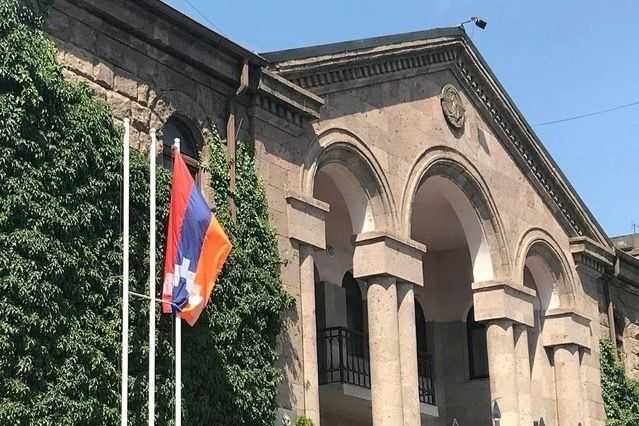
Tensions are running high in the southern part of Armenia as controversy around the demarcation of the border between Armenia and Azerbaijan causes security concerns for many.
On 17 December, the mayor of the southern city of Kapan, Gevorg Parsyan stated that they had received orders from the Armenian Defence Ministry to retreat from their current military bases near the new eastern border of Syunik and hand them over to Azerbaijan. According to Parsyan, they had until 17:00 on 18 December to retreat.
During the 44-day war, Armenian battalions in the southern province of Syunik — mostly composed of local volunteers — constructed military positions to protect their towns, villages, and roads as Azerbaijan advanced along the south-western flank of Nagorno-Karabakh.
Since Armenia gained independence in 1991 and won the first Nagorno-Karabakh war in 1994, Syunik’s eastern border was shared with Nagorno-Karabakh, and no proper defensive positions were established.
On 18 December, military volunteer regiments manning these new positions, created during the second Karabakh war, retreated.
In the following days, local volunteer soldiers and residents held protests closing several roads in the province, including major intercity highways, demanding the Armenian government ensure their security.
In an interview with Hetq, Mayor of Kapan Gevorg Parsyan said that the bases and their adjacent lands that they would be handing over would put the security of Kapan and its surrounding 13 villages at risk. According to Parsyan, with these new bases, Azerbaijan will be stationed 100 metres from nonresidential areas surrounding the city and 1 kilometre from residential areas of Kapan and its surrounding villages.
‘All these territories [bases and their adjacent lands] were Armenian [part of Republic of Socialist Armenia] until 1929 and then were given to Azerbaijan’, Parsyan said. ‘There were 21 villages included in those lands. Why should the demarcation take place based on a map from 1974 and not from, let’s say, 1929’.
Another issue the southern province faces involves the main highway in the region, which connects several major cities and serves as a vital transport link with Iran. Parts of this highway pass right on or through the eastern border with Azerbaijan. The road was built during the Soviet era when border crossing between Soviet states was not an issue.
Protests against Pashinyan
The process of demarcating the new border between Armenia and Azerbaijan is still in progress. Issues on how it’s being carried out, based on what legal principles and maps remain unclear.
In any case, for the local population fears are real taking into account that the Azerbaijani armed forces continue to take hostages even after the signing of the trilateral declaration which ended the 44-day war in Nagorno-Karabakh.
On 18 December, the governor of the Syunik Melikset Poghosyan called on all residents of the province to avoid the eastern border due to security concerns. ‘I ask all of you to not cross the territory of the Syunik province — which are protected by Armenia’s Armed Forces — to collect wood, graze animals, or for other reasons,’ he stated.
‘The Goris-Kapan highway is being controlled by Russian border guards and Armenia’s Armed Forces and civilian militia. The phone numbers of the command of the border guards are posted on road signs on the highway which you can call if need be’.
The country’s National Security Services (NSS) has also called on civilians to be cautious during the demarcation process and has provided phone numbers which people can call if they find themselves in ‘undesirable’ situations.
The NSS also announced that border guard positions were being determined along the Vorotan-Davit Bek section of the Goris-Kapan highway — the section of the that falls within Azerbaijani territory. According to the NSS, these demarcation processes are being carried out between Armenian and Azerbaijani border guards in collaboration with ‘Russian colleagues’. The NSS claimed the issue would be resolved ‘in the next couple of days’.
On 20 December, alarm was raised online when videos started spreading of a small military contingent walking on the Vorotan section of the highway holding an Azerbaijani flag. The mayor of Goris, Arush Arushanyan, also shared these videos blaming Pashinyan for the situation in the province.
With so much uncertainty and discontent, Prime Minister Nikol Pashinyan announced he would visit the region on Monday to talk to mayors, community leaders and residents.
Calls to close the roads entering the province were soon being made to stop Pashinayn from going, including one from the mayor of Goris.
However, protesters in Goris were stopped Monday morning from leaving the city to take part in the protest by heavy police presence sent from Yerevan. Clashes broke out between protesters and police.
Hundreds of other protesters, however, were able to block a section of the highway north of Goris.
Due to the protests, Pashinyan was able to visit only the city of Sisian and announced that he would not visit the other major southern cities because he did not want ‘to use force especially during days of mourning.’ The authorities in Armenia and Nagorno-Karabakh have announced three days of mourning from 19 December to 21 December.
The morning of Pashinyan’s visit, Goris’ mayor Arush Arushanyan was arrested. He has been charged with suspicion of organising or attempting to hold a rally in violation of the law. His case has been sent to the Investigative Committee of Armenia and a court hearing will take place on 22 December.
For ease of reading, we choose not to use qualifiers such as ‘de facto’, ‘unrecognised’, or ‘partially recognised’ when discussing institutions or political positions within Abkhazia, Nagorno-Karabakh, and South Ossetia. This does not imply a position on their status.







